By Cam Rea
It all started over grazing lands. Lot and Abraham had flocks and herds, but when they came to an area that could not sustain both men’s bounty, argument broke out between the herdsmen working for them. Avoiding further conflict, Lot left and headed east into the fertile plains of Siddim, establishing his tent before Sodom. Meanwhile, Abraham stayed in Canaan and moved to the plain of Mamre, which is in Hebron (Modern day Palestine).
Years passed. Then one day, a group of refugees brought news to Abraham that the armies of Mesopotamia had marched on Sodom. A great battle took place, they informed him, and his old neighbor Lot had been captured.
But before we get to Abraham’s reaction, we must pause to ponder a few facts. According to the story, four leaders made war on the five kings of the plains. But who were these rulers? What caused the armies of Mesopotamia to join forces in order to occupy the cities of the Jordan River plain? What was their objective?
How exactly could a vast army come together, from a collection of nations, and sojourn into the region?
Unfortunately for our inquiring minds, the Bible is fairly silent with regards to the Mesopotamian invasion of the Jordanian land. However, this should not stop us from trying to solve the riddle.
What can be gathered (given the timing of the event) is that the mega power in the region was none other than the Mesopotamian Empire of Ur III. The king responsible for mobilizing and executing the operation, therefore, would have been Amraphel of Shinar (Sumer), otherwise known as King Amar-Sin of Ur, who ruled Ur for 9 years from 1834-1826 BCE.
When it came to controlling his empire, King Amar-Sin of Ur did things a little differently… with impressive results.
Instead of acting like the Akkadian rulers, who stationed military troops throughout the imperial state, Amar-Sin decided it would be best to use peaceful and constructive socio-economic incentives to extend the revamped Sumerian city-states on the outer edges. It’s not that surprising, then, that during this period, Ur achieved the highest economic production of the region, allowing the construction of major public buildings.
Furthermore, in place of military enforcement, Amar-Sin established Ensi, or governors, who enjoyed almost complete independence. These Ensis, for the most part, were natives of the area they controlled; a policy that not only encouraged local cultural development, but also cemented the imperial structure by doing so.
Now, what did Amar-Sin then do with all these newly acquired riches and glory? Well, maybe predictably as both a man and a man of his time, he expanded the state (read his state) through war.
While the exact boundaries of Ur’s expansion during his 9 year reign are hazy, we do know he conducted war in the north-easterly districts. Additionally, Amar-Sin increased his sphere of influence with a policy of matrimonial alliances, as was the case with the city-states Mari and Elam. These alliances allowed Amar-Sin to utilize their armies for economic expansion by force.
Eventually Amar-Sin’s power lost favor within his realm. Twelve years had passed, and the city-states of Sodom, Gomorrah, Admah, Zeboiim, and Zoar were tired of paying tribute to the King. Amar-Sin, no doubt angered over the news, mobilized his forces.
They all knew that war was inevitable.
Around spring on the fourteenth year, the armies of Ur set out. The number of troops partaking in this military operation were around 10,000, perhaps a bit less. The route they probably took to reach their target would have been the King’s Highway, along the heights of Transjordan, through the land of Moab and descended, via the deep gorge of the River Karak, onto the south-east shore of the Salt Sea and into the great valley of Arabah.
The first city to go was Bela (later called Zoar), where the army of Ur tore down the walls, burnt the city and confiscated all the valuables they could find.
News of the disaster traveled quickly to the other city-states, causing the northern Arabah citizens and rulers to panic and fear the worst. This is exactly what the invaders wanted, psychological warfare to help bend the knees of their enemies. Many of the northern Arabah citizens fled westwards, around the shore of the Salt Sea, to the vale or plain of Siddim.
In particular, many sought refuge behind the mighty walls of Sodom, hoping that the armies of Mesopotamia would eventually turn back and head home after they received their fill.
They were disappointed. The Mesopotamian armies continued their tour of the region, making hits in the dry region of Negeb before pushing north towards the rebel kings, who were hiding up in their strongholds.
The five kings of the plain knew that by staying behind their walls, they would secure nothing but their own demise, being picked off one by one. Marching out together, as a united force, to meet the enemy on the field of battle, they finally concluded, would be their only chance of countering the enemy.
Both armies lined up for battle on the west shore of the Salt Sea, just south of Sodom. Even though the battle was not recorded in any detail, it was no doubt prolonged, bloody, and downright messy.
The kings of the Plain were defeated. King Bera of Sodom and King Birsha of Gomorrah were killed; their bodies cast into the bitumen pits of the Salt Sea basin. King Admah, Zeboim and Bela survived and fled into the hills.
It wasn’t just these kings who escaped into the hills either, but also everyone else seeking safety from the armies of Mesopotamia, who were marauding the landscape. They were destroying property, taking valuables…. and enslaving people.
It was around this time that Abraham got word of the events. One of his kinfolk reported what had happened, that Lot had been taken captive. If he didn’t do something soon, he concluded, Lot would be sold into slavery.
And now we return to the beginning of our story. So how exactly did Abraham react to this news?
He did not hesitate.
First, he sent messengers to his confederate Amorite allies, informing them of the situation and asking for assistance. Once the messengers were on their way, Abraham updated the menfolk in his household. He told them that he would go after and rescue Lot. He continued that if any man was willing to help him, he should step forward now.
Who knows how many men were in Abraham’s camp, but three hundred and eighteen men of his household voluntarily came forward. These men were already trained in the martial arts and were quickly armed according to their specialty.
Abraham and his men travelled north for many days, likely taking the King’s Highway, gathering intelligence and keeping an eye on the enemy’s movements. Finally they found them; the armies of Mesopotamia were encamped near the town of Laish (Dan), celebrating their victories.
Abraham kept a watchful eye on the festivities, likely keeping track of the guards and their movements. Perhaps he was even collecting information on the exact location of both the prisoners and loot from people who were not aligned with the army, coming in and out of the encampment.
Abraham waited for many hours, allowing the alcohol drunk by the enemy to take full effect.
Once the army succumbed to intoxication, Abraham divided his men into two groups of 159. The enemy had fallen into a drunken sleep, their fires flickering, casting long and dark shadows. In was in this setting that Abraham and his men infiltrated the camp in silence and smote many dreaming foe.
Once Lot and the loot were found, Abraham and his men quickly packed up and moved out before any alarm could be made.
Abraham was clearly successful in what was technically the first recorded special operations mission… and one that is still studied today in many military academies.
—————————————-
Epilogue
Afterwards Abraham, along with his men, camped at the Valley of Shaveh and the new king of Sodom, who, among others, was still hiding, came out. He had received the news; Abraham had defeated the Mesopotamian army and had retrieved the property of the people and that of the five kings.
But before the Kings of the Plain arrived, Melchizedek priest-king of Salem (Jerusalem) visited Abraham. Melchizedek, who had no part of the war, recognized kindness when he saw it, and came out to Abraham and his men, bringing food and drink. He thanked Abraham and blessed him for his good deed. Abraham, seeing the sincerity of Melchizedek, responded to the priest-king by giving a tithe.
While Melchizedek responded with hospitality, wanting nothing but to say thank you, the king of Sodom was rather political in his approach. He didn’t say thank you or offer food and drink. Instead, the king of Sodom tried to strike a deal. He offered all the loot to Abraham… as long as he returned the people to the king.
The problem with this is that the Mesopotamian kings had captured the people and looted the cities of the plains. Abraham had, in fact, not taken anything from them. Further more, he owed the kings of the Plain nothing legally or morally – anything taken was technically legal by the fair fortunes of war.
But Abraham was not like that. Instead of making a deal with the king and his royal entourage, Abraham refused to keep the loot or the people, even though he was clearly entitled.
“I have lift up mine hand unto the Lord, the most high God, the possessor of heaven and earth, That I will not take from a thread even to a shoelatchet, and that I will not take any thing that is thine, lest thou shouldest say, I have made Abram rich.”- Gen 14:22-23.
In other words, Abraham would only accept riches from God, not from some politician seeking to strike out a deal. For him, rescuing his old neighbor Lot was reward enough.
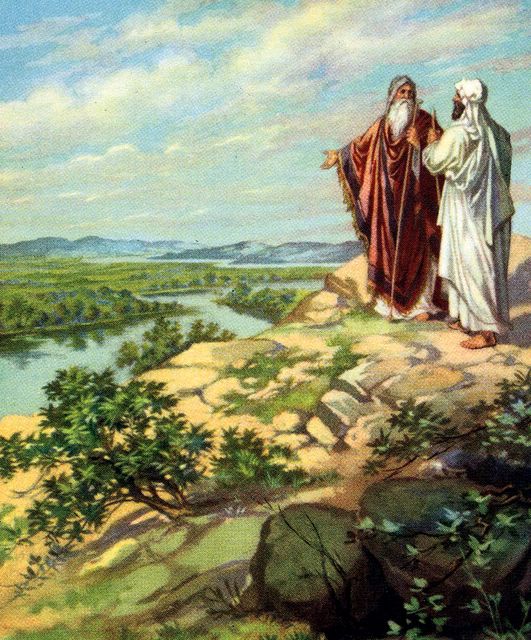
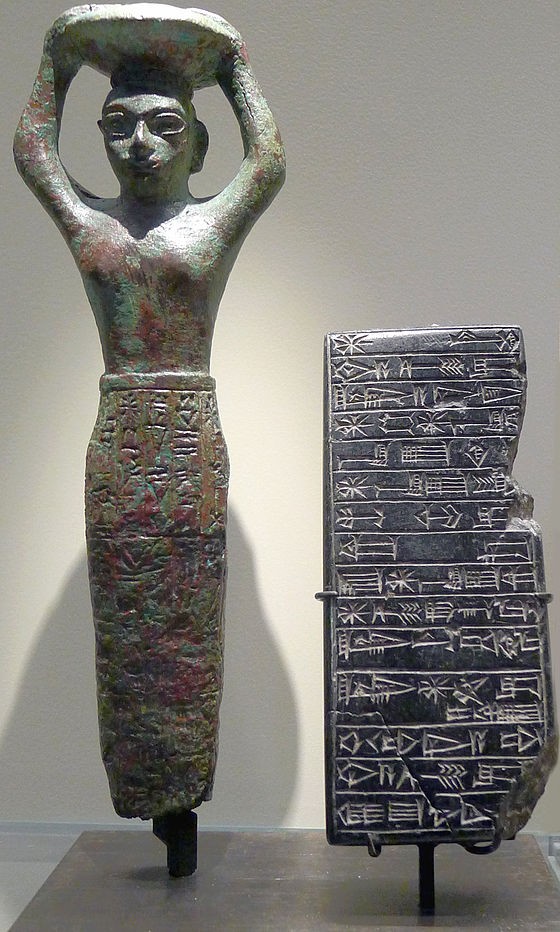
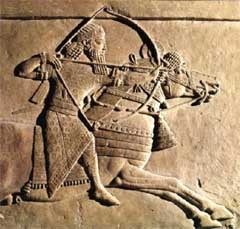
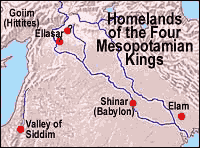

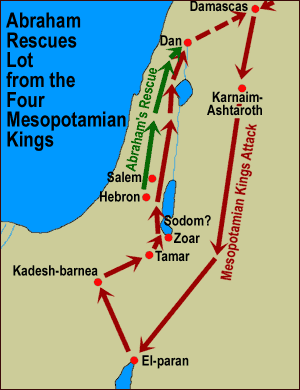
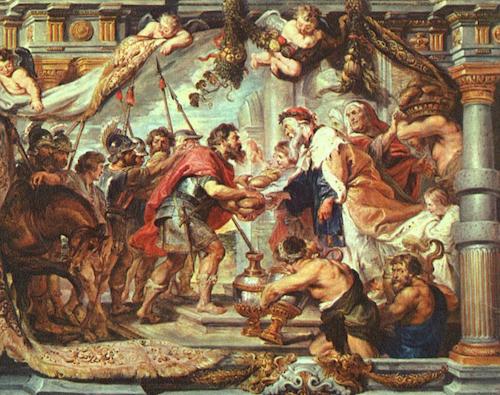









No comments yet. You should be kind and add one!
Our apologies, you must be logged in to post a comment.